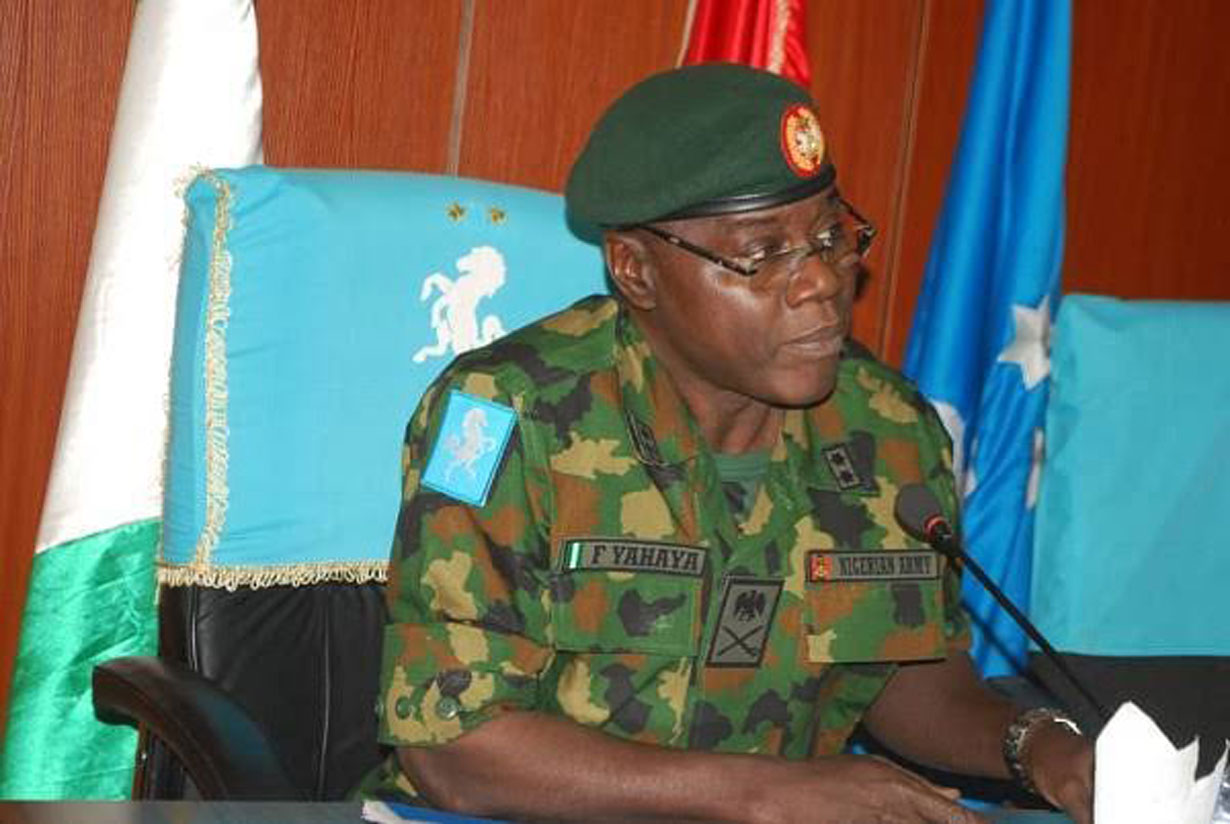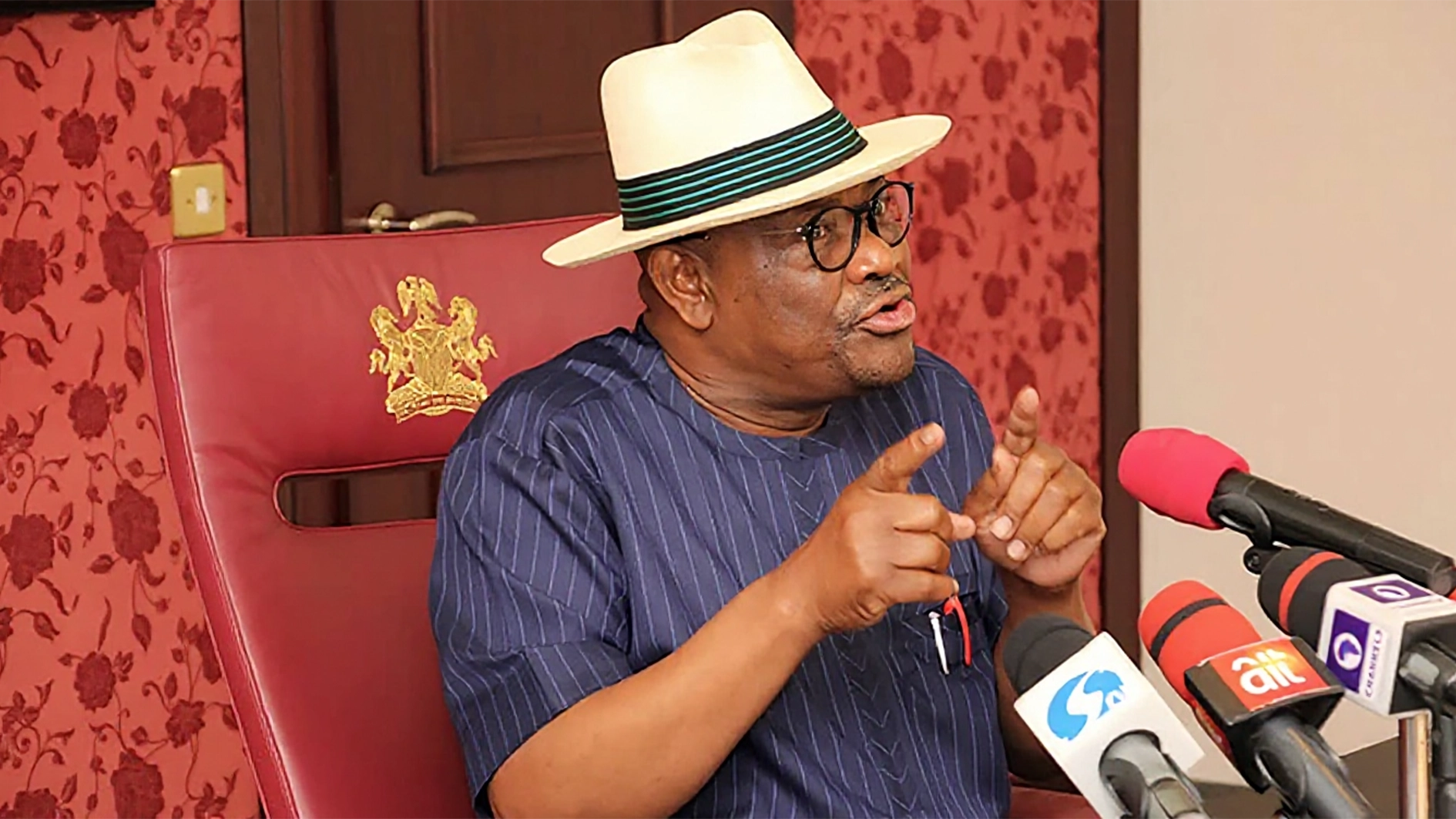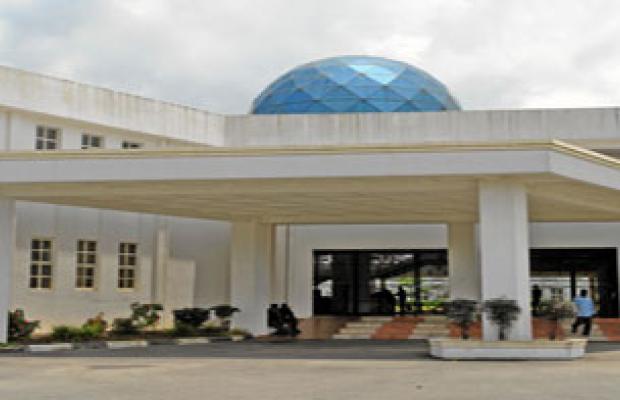
Worried by the rising insecurity across the six geo-political zones of Nigeria, some security experts have advised the new Chief of Army Staff (COAS), Major General Faruk Yahaya, to stamp his feet on the ground and put an end to insurgency and banditry by reaching out to neighbouring countries.
Yahaya, who has now been confirmed by the National Assembly as substantive army chief, is coming in when the military is faced with myriads of internal security challenges.
President Muhammadu Buhari a few weeks ago appointed Major-General Farouk Yahaya as the new Chief of Army Staff, with about 20 Generals of Regular Course 35 and 36 proceeding on retirement. The new army chief was appointed to replace the late Lt. General Ibrahim Attahiru, who died in a plane crash in Kaduna together with 10 other military officers recently. Yahaya is of Regular Course 37.
Setting agenda for the new army boss, former military officer and Managing Director of Strict Guard Security, Dr. Bone Efoziem charged him to partner neigbouring countries solidly to end the scourge. “The new chief should do more collaboration with neighbouring countries so as to control support and supply to the bandits and terrorists. He should improve personenel welfare and avoid keeping them too long in combat areas to avoid combat fatigue.
“He should relate better with other sister agencies to increase intelligence and aerial aided engagement. Increase non-kinetic activities through engagement of the media and communities.”
The Chief of Army Staff had shown vigour has hit the ground running with the immediate visit to the theatre headquarters of Joint Task Force North East Operation HADIN KAI (OPHK) with a view of motivating fighters. This is the Chief’s maiden operational visit to the theatre to assess the operational and welfare state of the troops. During his visit to the hospitals, he assured troops of adequate medical care and support in the ongoing counter-insurgency operations.
The COAS gave assurances of quality medical care on Friday, June 18, 2021, when he visited the 7 Division Hospital and University of Maiduguri Teaching Hospital (UMTH) to commiserate with the sick and wounded in action, including troops recuperating at the medical facilities. The COAS also prayed for their speedy recovery.
While at the hospital, the COAS took time to interact with the soldiers and assured them of proper medical care and welfare, adding that their medical care is of utmost importance to him. He said the nation is indeed proud of their selfless service and sacrifices towards restoring peace to the North East region.
Similarly, Yahaya visited the Mechanical Repair Group to inspect ongoing repairs and refurbishment of vehicles through the use of local resources. The COAS appreciated the commitment and selflessness of the troops in the Theatre and implored them to exhibit a high level of professionalism and ensure that all remnants of Boko Haram and Islamic State of West Africa Province (ISWAP) terrorists are neutralised.
Lending his voice on how the army could perform optimally under the new COAS, Executive Director, Civil Society Legislative Advocacy Centre (CISLAC), Auwal Musa Rafsanjani, said the state no longer has the monopoly of force as it has lost control. “Massive onslaught against schools, kidnapping, insurgency in the North, banditry in entire parts of the country and the emerging monster; secessionists agitation in the South are lined up for the new chief to engage. The country is bleeding and to be honest, there is little or no time for any ceremony,” Rafsanjani said.
Data from SBM Intelligence shows that between January and November 2020, there were 142 incidents insurgency in northeast Nigeria, an average of 13 a month. At least 1,606 people were killed in 125 fatal incidents, an average of 13 per incident, suggesting that Nigeria is the third-most terrorised country in the world, according to the Global Terrorism Index released on November 27, 2020.
“In April 2021 alone, almost 600 civilians were killed across the country and at least 406 abducted by armed groups. The violence has left much of the country on edge and Buhari facing the fiercest criticism since he took office.
“A weak state is both a consequence and enabler of the growing chaos. Armed gangs, operating out of poorly administered rural areas or the neglected shantytowns of cities are part of a deeply entrenched criminal industry. The substantial profits they earn allow them purchase more and better weapons, and the intimidation or the pay-off of yet more local officials and members of the security forces.
“The sheer amount of ungoverned spaces that exist in Nigeria is the problem, with an unemployment rate of over 33 per cent and anemic economic growth-you know it can’t get better. These are the things driving insecurity. Separatist unrest in the southeast has particular resonance in Nigeria. The self-declared state of Biafra was mainly an Igbo secessionist enclave that existed from 1967 until its defeat by federal forces in 1970, in a war that may have claimed as many as one million lives.
“The resurgence of the idea of self-determination stems from a perception of the region’s deliberate marginalisation by the government of President Muhammadu Buhari, and the heavy-handed policing by security forces that has killed hundreds of people, since he was elected in 2015, according to Amnesty International.
“That local grievance has helped drive the rise of IPOB, whose goal is to create a “new Biafra”, via a referendum. Despite IPOB’s non-violent calls for a “Biafraexit”, it was banned as a terrorist organisation in 2017,” Rafsanjani said.
The Eastern Security Network (ESN), formed in December last year, has taken a far more radical position. It fought with security forces in the town of Orlu in late January, after which IPOB declared that the “second Nigeria/Biafra war” had begun, according to Rafsanjani.
According to him, poor policing aggravates Nigeria’s instability. He describes it as an issue of absolute numbers. The police/civilian ratio, he asserted, is well below UN recommendations, adding that lack of equipment, poor training, and low morale of the average officer form part of the greater challenges.
His words: “As insecurity has worsened, the federal government has called on the army for help. But the military is also undermanned, stretched by the conflict in the northeast – and its members are not trained for a policing role. That means they are all too frequently shooting to kill, and with almost complete impunity.
“The military is now deployed in 35, out of Nigeria’s 36 states, but the security situation is still terrible and deteriorating. The new COAS must look at these elements and use them as lessons to influence internal rules of engagement and additional training if he must deliver.
“We commend the new approach of citizen-centered policing by the various military theatres. It is a clear indication that the advocacy for better and efficient localisation of the protection of civilians and civilian harm mitigation is melting into the system.
“COAS must first overhaul its various concepts of operations and rules of engagement across the country and put civilian protection at its very nerve. An immediate audit must be carried out to reflect rotation of personnel in the field, combat allowances restored, equipment validated and welfare prioritised. He must also look at Post-traumatic stress disorder (PTSD). Most fundamentally, there is a procurement racket going on at the expense of people’s lives. There is an urgent need to reverse this ugly trend.”
Criminologist, Albert Uba said the present security challenges seem to have defied all known stratagem. According to him, the problem is not insurmountable. Internal security, he noted, is the sole responsibility of the police under normal circumstances, but added that since the evolving scenario has clearly shown that the police is in dearth of the technical know-how and logistics; including numerical strength to match force for force with the ugly situation, the military has had to be invited.
He said: “The new Chief of Army Staff should know that the present situation is far from being conventional and therefore, should be approached as such. Crime is local and so, a greater dependence on the locals for vital information is advised.
“He needs more of local intelligence and multi-disciplinary approach to tackle the hydra headed monster guised kidnapping, Boko Haram insurgency, banditry and off course, highway robbery. That done, the issue of rotation of men on the field is important. This brings about new vigour, blood and ideas injected into the overall mechanism as panacea against insecurity in the land”.






